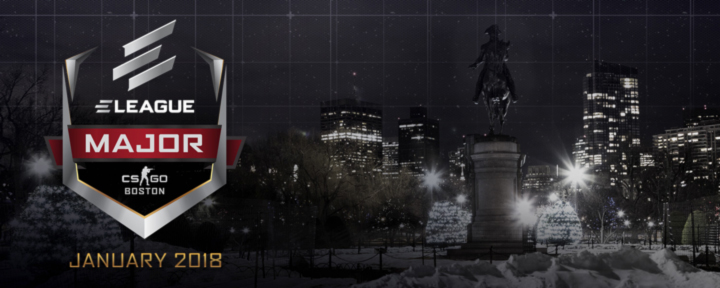By Anthony W. Metzler
For $120.00 you could get a 3-Day Ticket to Agganis Arena for the ELEAGUE Boston Major, which took place January 26th, 27th and 28th. This is the third and final weekend in the competition, which culminates with a $1 million dollar prize pool. Enthusiasts and competitors alike will gather to watch the world’s best teams, including FaZE, Natus Vincere, Quantum Bellator Fire, G2 Esports and SK Gaming. Boston Major is not the first tournament for Esports with this sort of prize money. In fact, the International Competition Prize Pool in 2017 boasted a $24,687,919 award and was more than two times larger than that of the same competition in 2014. The two contests are among 45 competitions that had a prize pool over $1,000,000. A few words come to mind when we ponder the sheer magnitude of this industry; money, popularity, potential. Playing video games competitively against persons from all around the world is not what your grandfather imagined as a collegiate sport. But with Esports size and a large number of both players and fans being college age, the National Collegiate Athletic Association (“NCAA”) is looking to jump into this lucrative market.
Esports are competitive video gaming at a professional level. There are two main formats for Esports: first-person shooting games or Multiplayer Online Battle Arena games. Esports also use the formatting of strategy games and sports games, like Madden and FIFA. Participants compete against each other with a specific set of goals, sometimes to shoot the other player, sometimes to score more touchdowns than the other player, or sometimes fighting over a location in the game itself. The prize is cash, but for some leagues there are regular salaries and player rights. Currently, many of the players also make individual income from posting their gaming sessions on the internet via a service called Twitch. By 2020, it is predicted that Esports will be a $1.5 billion industry.
This booming cash flow is why nearly 50 colleges and universities already offer Esports scholarships. This growth is happening exponentially, and the NCAA simply cannot afford to continue to ignore it. With teams from Boston University and Rutgers University, The American Collegiate Esports League is among the leading college leagues in the country. These colleges do not have to build monumental stadiums for these teams, nor do they have to outfit massive rosters cutting edge equipment or hire support staffers like athletic trainers.
But, the NCAA also has reasons for reservations about Esports. The NCAA requires that all student-athletes be certified as amateurs. As part of the requirements, student athletes cannot contract with professional teams, they cannot have a salary for participating in athletics, there must be no prize money above actual and necessary expenses, they cannot play with professionals, they cannot try out with, practice for or compete with a professional team, they can not have benefits from an agent, and they cannot be represented by an agent. Additionally, Under Title IX of the Education Amendment of 1972, no person shall be denied participation in or denied the benefits of or be subject to discrimination under any education program or activity which receives federal funding. Additionally, over 90 percent of Esports participants are male.
The industry of Esports is large and lucrative. I believe that the NCAA is late to the game when it comes to this emerging, popular style of sport. Frankly, the NCAA’s policy on amateurism does not fit the current market for Esports. Primarily amateurism does not fit into the market because the professionals of this sport are college age. Additionally, the magnitude of college-aged participants competing for prizes drives the sports existence, and according to the amateurism policy, those students would not be allowed to participate. Even of the students who do not play officially professionally, it is commonplace in the market to use sources like Twitch to monetize their hobby. I also believe that without a rapid and drastic inclusion of female athletes, an educational facility receiving federal compensation could find itself in trouble with Title IX implications. There is simply not enough diversity for the sport to be considered coed.
Esports are just one component of a growing movement that is changing the world. Few will argue that technology is not molding every aspect of our lives, from our daily devices to the way that college sports are orchestrated. We are in uncharted terrain. The NCAA is one of the greatest organizations for structural integrity amongst competitive sports. Esports could use structural integrity and a longstanding tradition, but the fact of the matter is between college regulations and policies by the NCAA, there is less common ground. Esports are a multi-million-dollar industry with the potential to explode into a billion-dollar industry, and if that industry would suffer from affiliation with the NCAA, they should not have to deal with those potential consequences.
Student Bio: Anthony is currently a 2L at Suffolk University Law School and serves as a staff member on the Journal of High Technology Law.
Disclaimer: The views expressed in this blog are the views of the author alone and do not represent the views of JHTL or Suffolk University Law School.

